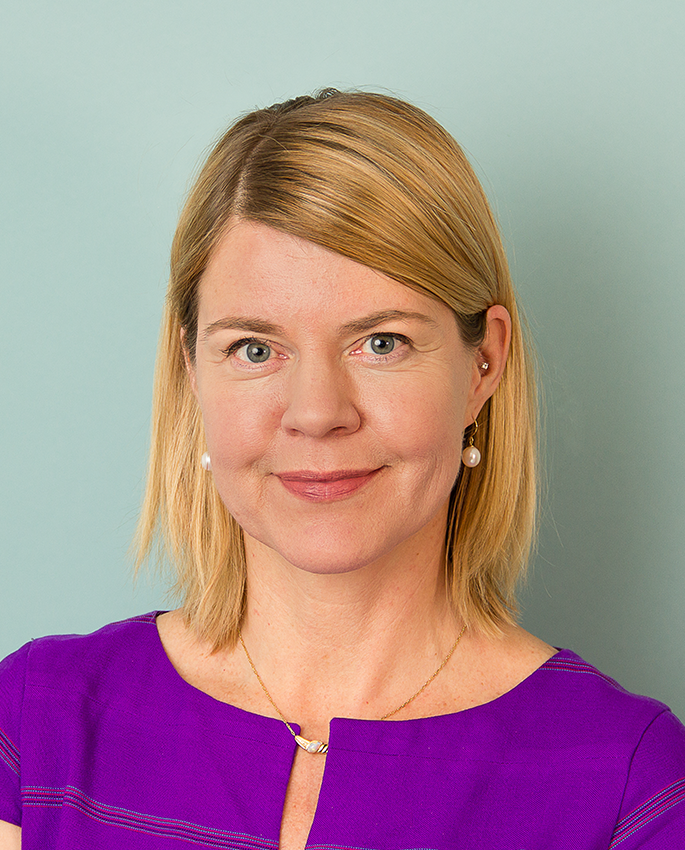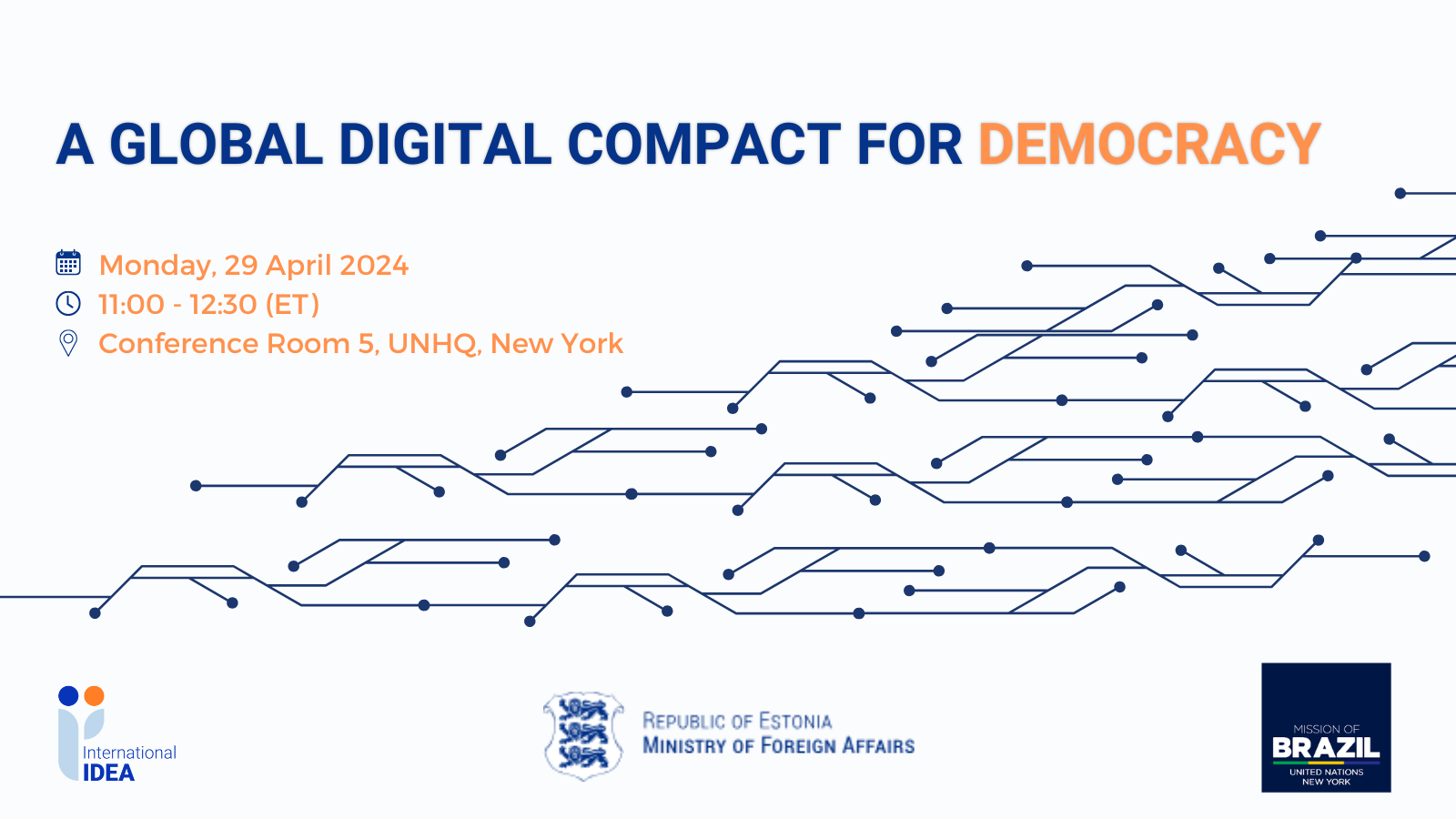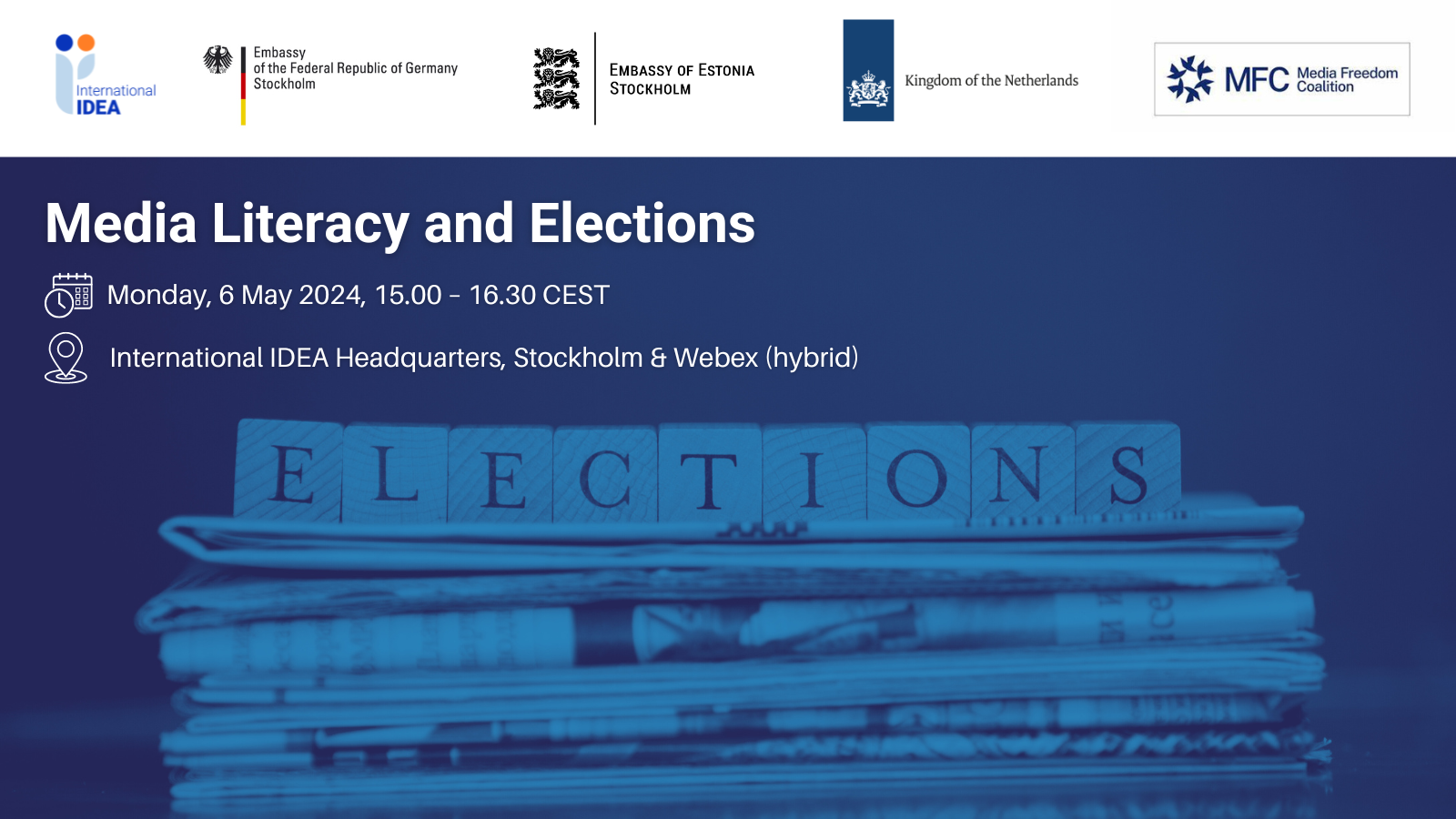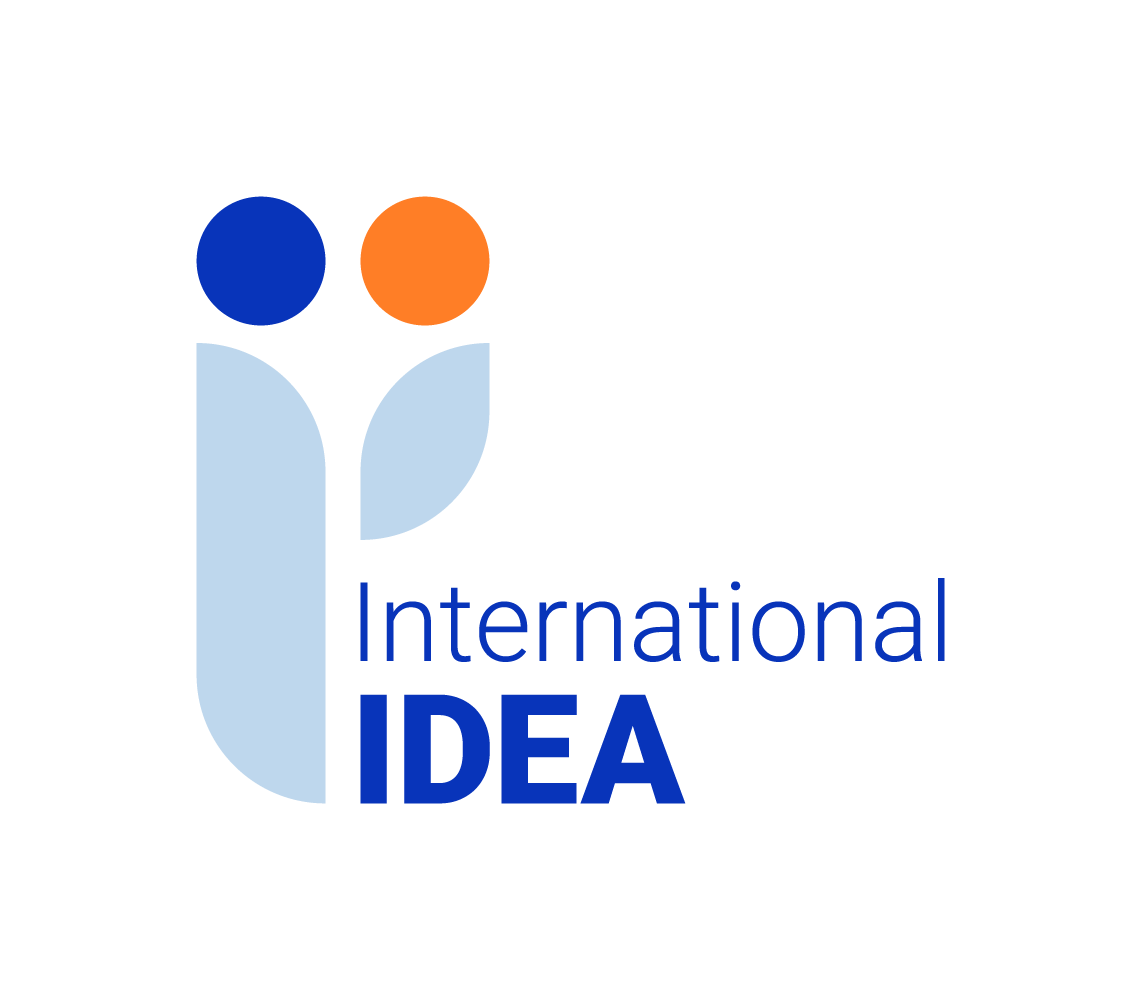Money in Politics in the Asia Pacific Region

As 2016 draws to a close, I would like to bring your attention to the important issue of money in politics.
It is an issue that all countries struggle with. From high costs of campaigning to high costs of running a political party effectively. From the high level of vote buying practices to the increased voter demand for quid pro quo. From the low level of legally-mandated transparency to the low proficiency in reporting. From the concerns about foreign donations to the questions surrounding anonymous donations. These are all relevant issues facing different countries, particularly in the Asia and the Pacific region.
In accordance to our mandate to support countries in undergoing democratic review and reforms, International IDEA in the Asia and the Pacific has been working with partners in trying to tackle the aforementioned issues. We chose to first engage at the inter-regional and sub-regional levels before venturing into countries interested in our engagement.
As you may know, the Asian-African practitioners’ meeting on political finance regulation and the eradication of corruption took place in Bandung, Indonesia, 20 - 22 October 2015 as part of the commemoration of the 60th anniversary of the Asian-African conference in 1955, which promoted world peace and cooperation in the early years of the Cold War. Thanks to our partners, the Ministry of Foreign Affairs of the Republic of Indonesia and the Non-Aligned Movement Centre for South-South Technical Cooperation, we were able to cooperate internally with colleagues from the Africa and West Asia regional programme in bringing together brilliant minds from both continents to exchange views and experiences in tackling corruption through the regulation of money in politics. The meeting found common constraints and challenges between the regions in the inadequate oversight and prosecutorial powers, insufficient human resources, lack of technically-skilled people in oversight agencies, outdated or ill-equipped legal frameworks and absence of long-term, sustainable budget allocations for enforcements. These findings give all of us a lot to think about in the future and may help shape reform engagements at country levels.
The South Asian sub-region has been making concerted efforts to tackle the money in politics issue. It started from the resolve of the forum of electoral management bodies of South Asia (FEMBoSAa) which in 2014 identified the issue as one of its priorities. Fast forward to December 2015, the Indian election commission partnered with International IDEA in bringing together those election management bodies as well as political parties, experts and practitioners from all countries in South Asia. Thus, the South Asia regional conference on the use of money in politics and its effects on people’s representation produced the New Delhi declaration on political finance regulation in South Asia. As you can see, the ¨declaration attempts to present the overarching principles as well as the regulation and implementing guidelines for regulation money in politics in the region. The declaration was a result of discussions and debates between practitioners and observers alike from the entire region. We thank the Indian election commission, particularly the Indian International Institute for Democracy and Electoral Management (IIIDEM), and those present at the conference for their cooperation on this.
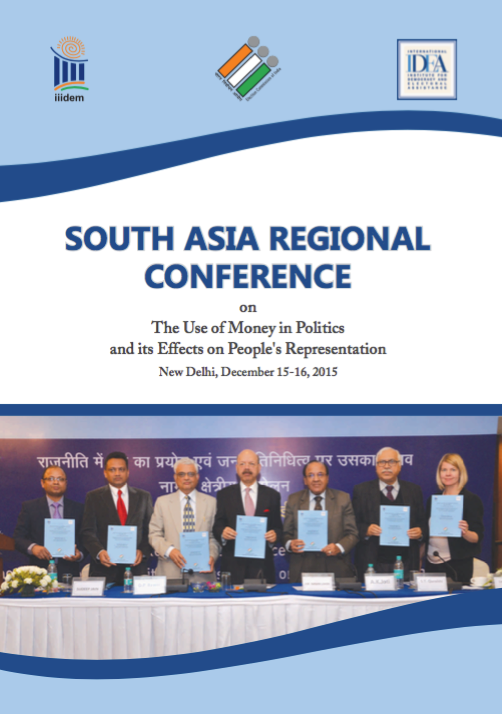
Photo: Indian Institute for Democracy and Electoral Management
While the aforementioned outputs are available for anyone in the world to see, contemplate and use, International IDEA in the Asia and the Pacific region in particular, chose to work with those interested in the South Asian region to build greater awareness on the virtues and pitfalls of money in politics, which may lead to much-needed legal framework and other reforms. For this purpose, the declaration has been translated into Nepali, Sinhalese and Tamil.
In Nepal, we are working with the Nepalese election commission in promoting dialogue between regulators and political parties about the importance of regulating money in politics. The election commission staff were also trained in taking advantage of International IDEA’s political finance reporting tool to streamline their political party financial report management.
In Bangladesh, with the facilitation of Dr Abdul Alim, Director of the Election Working Group (EWG), we introduced the Declaration to a group of political party representatives at district level. A Facebook page has been created by Dr Alim to help disseminate the Declaration further.
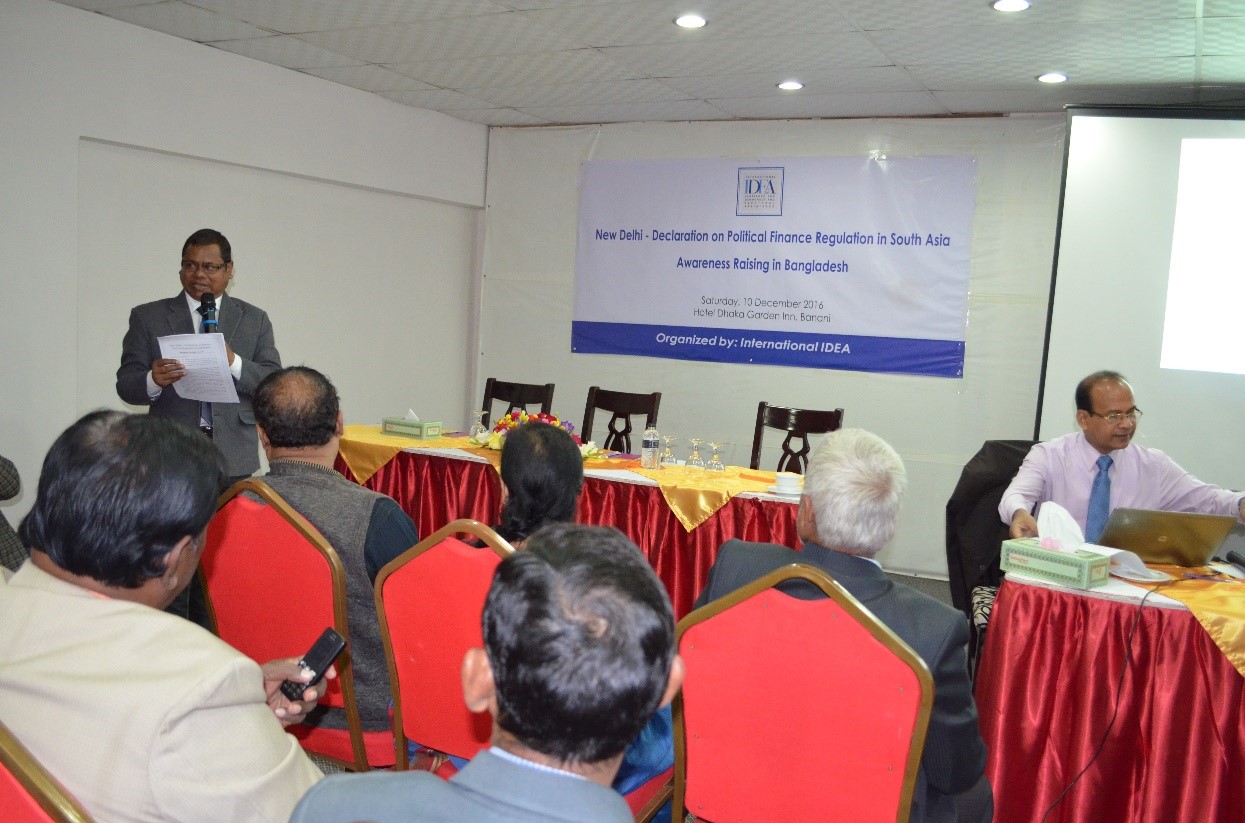
Photo: Dr Abdul Alim
While in Sri Lanka, in partnership with the Centre for Monitoring Election Violence and backed by the Election Commission of Sri Lanka and the People’s Action for Free and Fair Elections (PAFFREL), we raised awareness of the declaration of principles alongside CMEV’s efforts to improve access to the assets and liabilities declarations that candidates must submit to the election commission. The principles of transparency found in the declaration could help encourage those candidates. With local government elections potentially taking place in the first half of 2017, the efforts are quite timely.
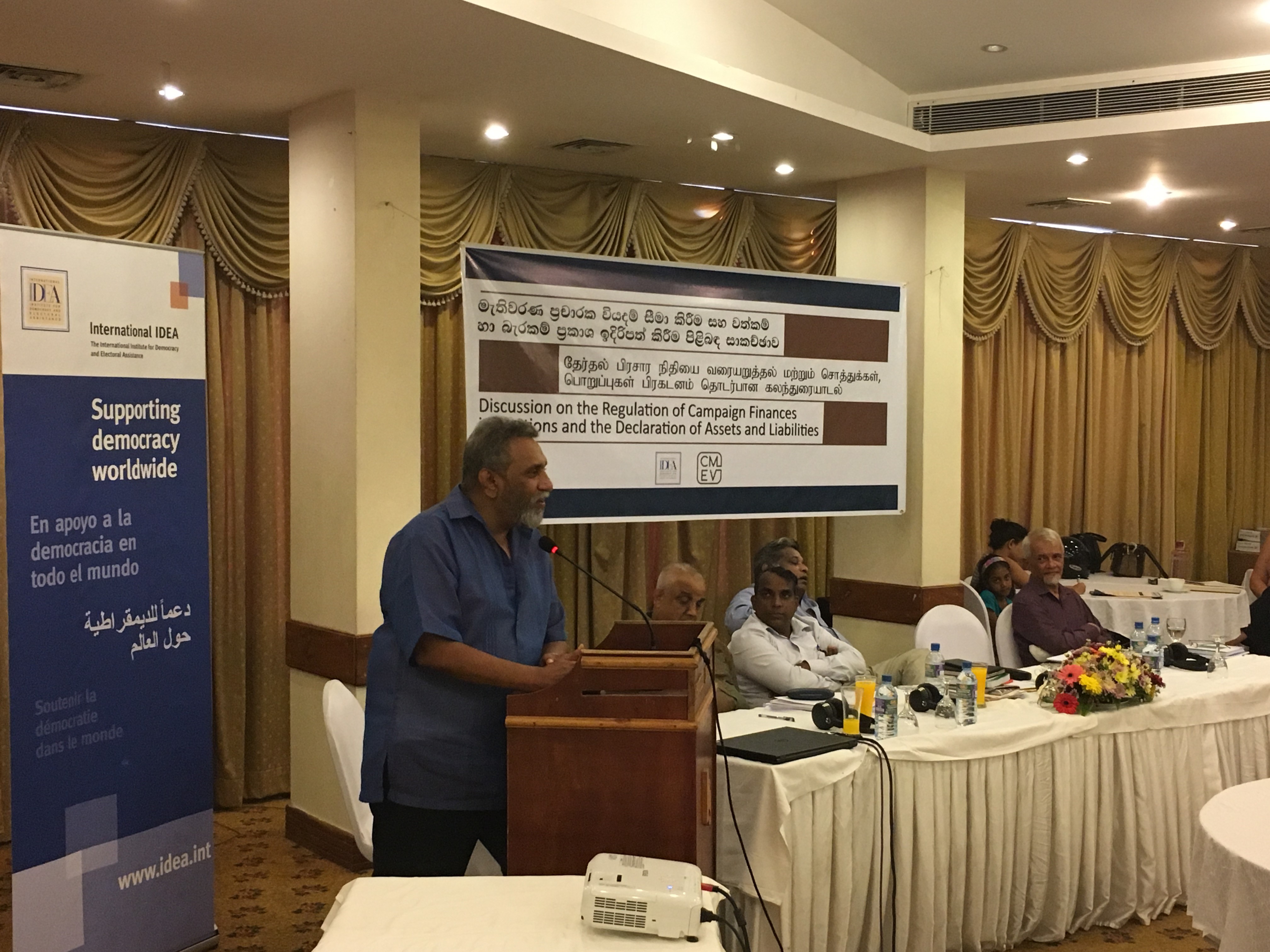
Photo: International IDEA
This is just the beginning and we hope that others will join in the efforts of maximising the boons of money in politics and of minimising its banes. In 2017, International IDEA will continue building upon the efforts of 2016 through stronger partnerships and cooperation
For now, I would like to wish you season’s greetings and a happy new year!
